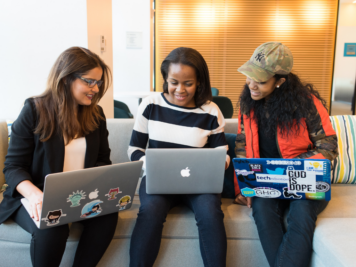Every coffee shop likes to advertise its most exotic (read: expensive) coffee bean blends. These more often than not include a line or two about the beans’ dramatic journey from a far-flung locale all the way to your cup.
But are you sure you’re getting that Rwandan blend you paid for? How about that $350-per-pound Vietnamese blend? Are the coffee shops even sure?
The answer, it turns out, is yes. It is possible to know.
Thermo Fisher Tech Uncovers The Origin
So, how does it happen? You can thank the world leader in serving science, Thermo Fisher Scientific. Their researchers create a range of products that can do everything from identifying Ebola outbreaks to determining the origin of your favorite coffee bean.
Allow us to explain.
Figuring out where coffee beans originated from is no simple task. To do so, Thermo Fisher scientists applied the same inventive attitude they used developing DNA sequencing technology and producing Nalgene water bottles.
Their first step was conducting a study that applied Thermo Fisher technology to coffee sourcing. Through their work, they found that it is possible to conclusively identify exactly where you get your coffee from.
Isotope Fingerprinting Finds Its Genetic Family
The secret lies in a technology called isotope fingerprinting. And to understand what that means, you need to have a little background information. All molecules decay in a certain way. But the specific manner in which they decay depends on how long they’ve been around and the way their molecules are arranged.
That, in turn, means you can tell how two coffee beans—made from roughly the same species of plant—are different. From there, you can even determine where in the world those coffee beans are from.
This is very similar to carbon dating, which is a type of technology that can tell us how old fossils are. However, it’s not just age that Thermo Fisher scientists are looking for when they study the mysterious coffee bean.
By metaphorically zooming in on even more nuanced details of the plant’s isotope fingerprint, they are able to match any batch of coffee beans to a sample from a specific part of the world. They can then compare and contrast the two kinds of beans, which enables them to properly label their place of origin.
With the largest investment in research and development in the industry, Thermo Fisher was able to design a process that can verify where your favorite coffee beans are from. And while it might be cool for you to know that you are indeed drinking the legendary Kopi Luwak coffee from Vietnam, it’s also beneficial for a range of producers and distributors who are involved in the farming and manufacturing of those beans.
Pretty cool, right?
Just be warned: Thermo Fisher’s technology won’t reveal whether the $6 you paid for that velvety cup of Joe is really worth the money.
That, my friend, is all on you.
Interested in working for a company that is using technology to solve the world’s most vexing problems? Well, you’re in luck. Thermo Fisher is hiring on WayUp, so check out their open positions and apply here!




